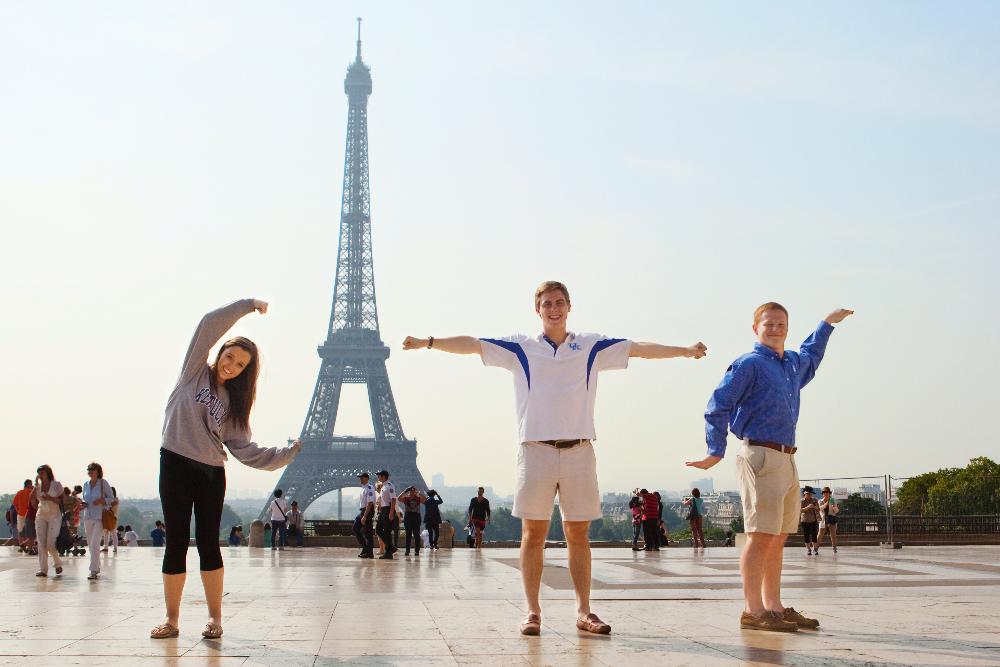Where do I start? Check out the process here: A&S Education Abroad page
Who can I ask questions? Email us at AS-EdAbroad@uky.edu
These trips are life-changing, resume-building, and perspective-enhancing. We are here to help you succeed!
Summer 2024
A&S Faculty-Directed Programs
Student Testimonies: Summer 2015 program / Summer 2016 program / Summer 2017 program / Story map created by a participant
A&S Faculty participating in Partner Programs
Ireland with Dr. Julia Johnson (English)
Dates: June 8, 2024 - June 24, 2024
Munich with Dr. Bess Dawson (German)
Dates: 06/11/2024 - 07/14/2024
Morocco with Dr. Nisrine Slitine El Mghari (French)
Dates: 05/12/2024 - 06/08/2024
Paris with Jeff Peters, Jeorg Sauer and James Donnovan (French)
Dates: 06/21/2024 - 07/22/2024
Taiwan with Dr. Jianjun He (MCLLC)
Dates: 06/04/2024 - 07/04/2024
* Application deadlines are February 1 and 5 for these partner programs, so make sure you apply early!









